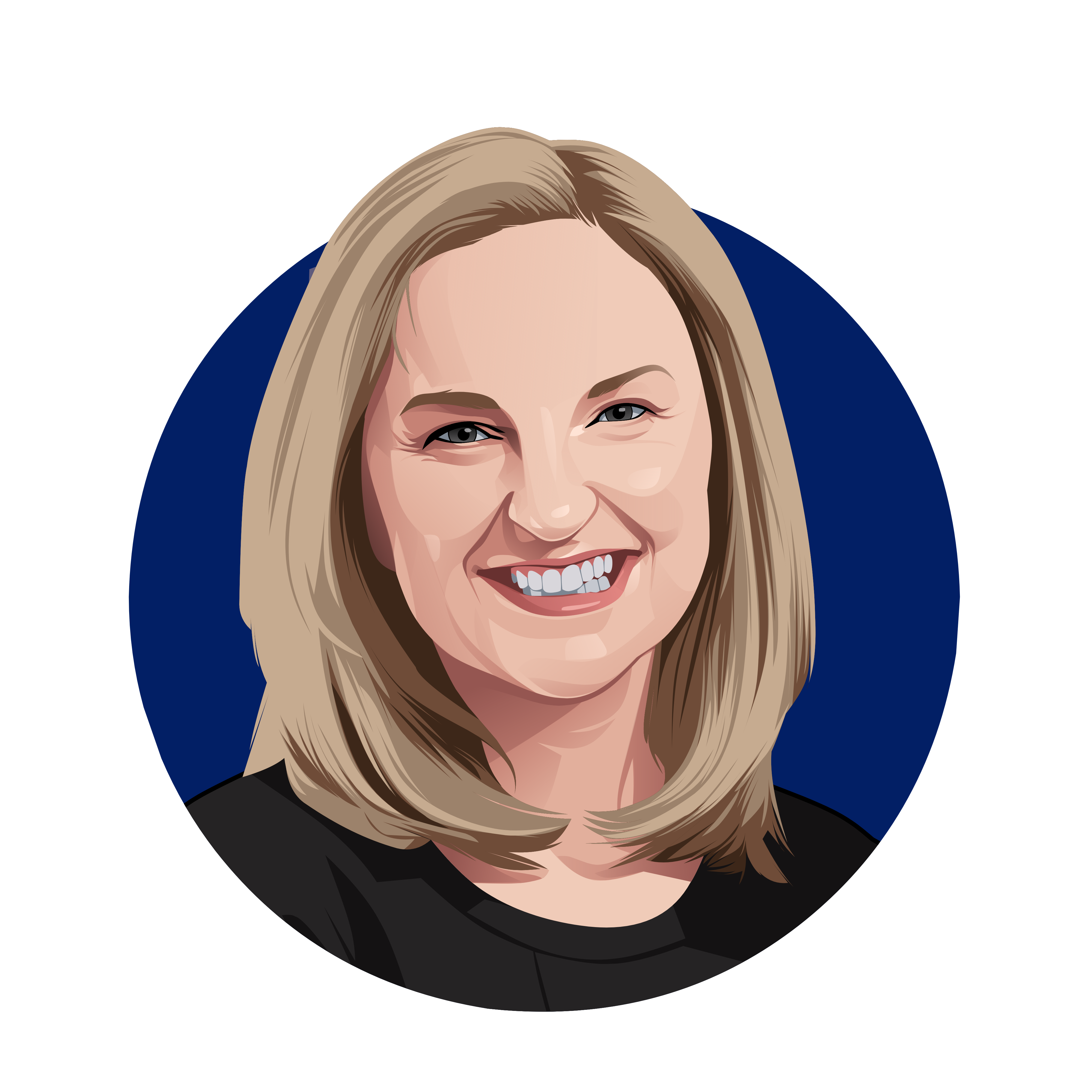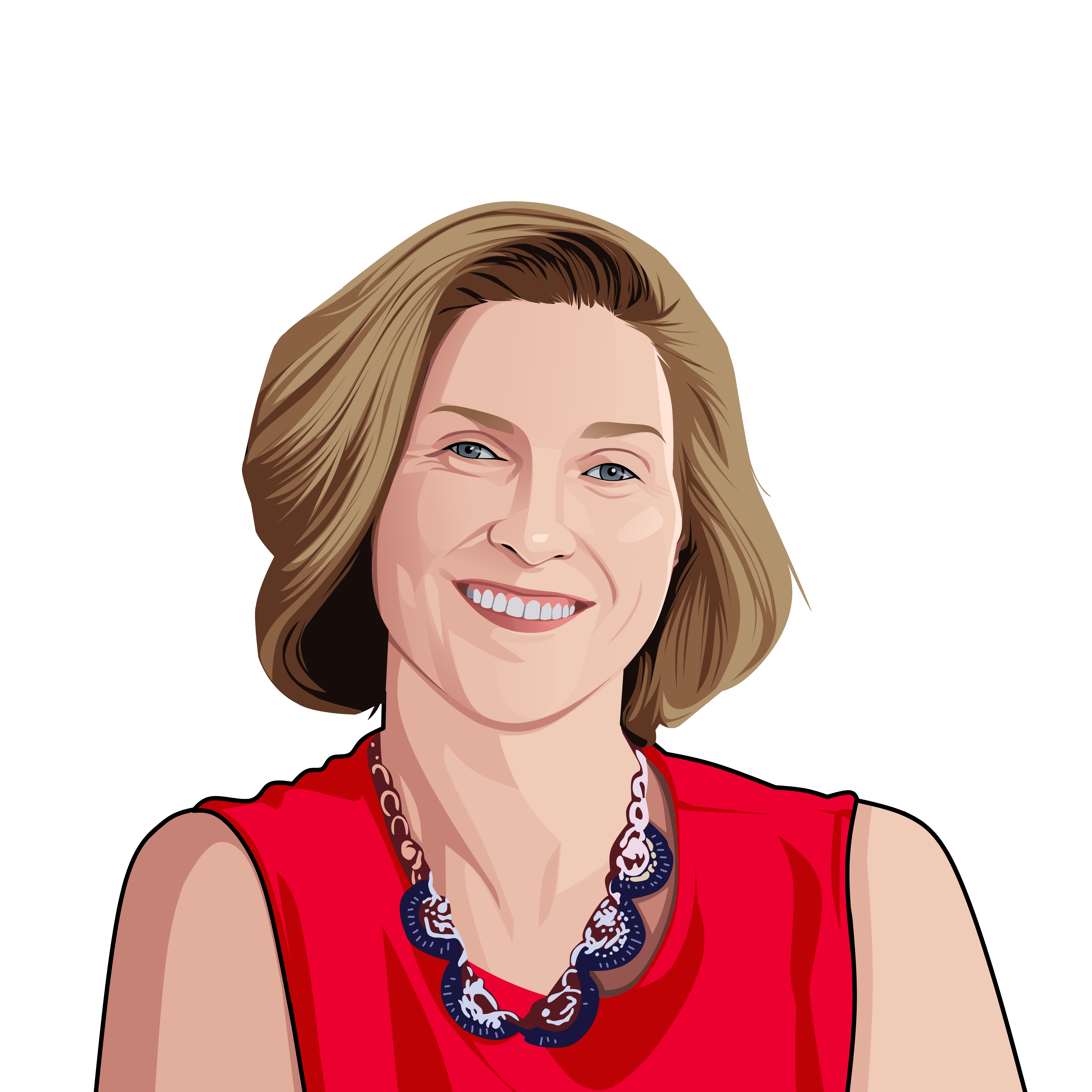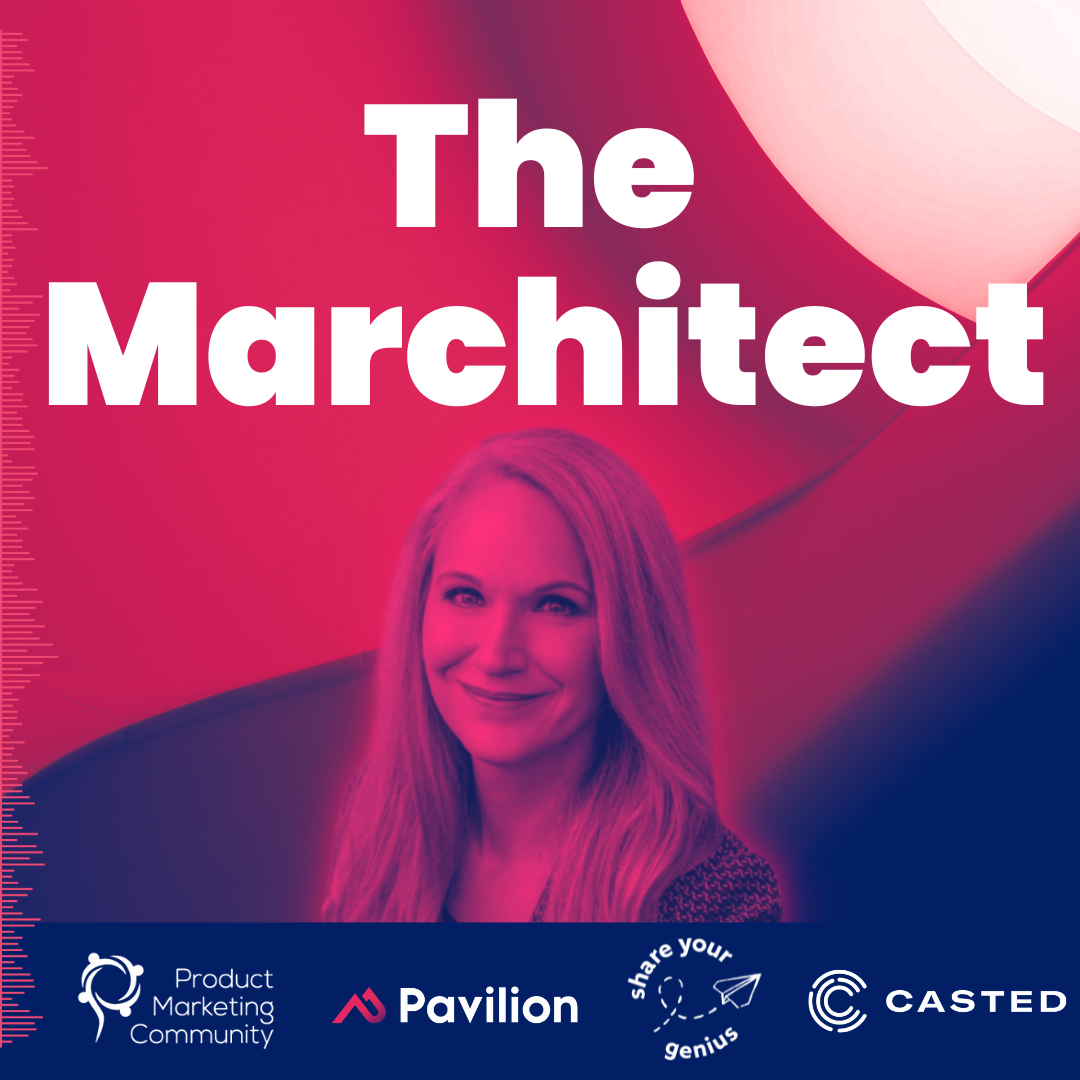Episode 9: Different Than the Average Marketing Bear (Indeed & SEBA)
- 0.5
- 1
- 1.25
- 1.5
- 1.75
- 2
Lindsay Tjepkema: The tide has turned. B2B buyers and sellers interactions have changed. Welcome to The marchitect, a new podcast series for B2B product marketing executives. I'm Lindsay Tjepkema, CEO and co- founder at Casted, the first amplified marketing platform for B2B marketers and a proud partner of the product marketing community. We are very excited to be bringing you this special series that focuses on amplifying the expert perspectives, insights, and opinions of this brilliant community. Each episode will feature in- depth advice from executives, who will tell you how they built impactful teams, optimized go- to- market efforts, and enabled customer- facing teams. The marchitect is an easily digestible way to learn from your peers as you aspire to be an architect for growth. Welcome and enjoy this episode.
Rowan: Welcome to The marchitect, a podcast series where leadership and product marketing meet. The marchitect is for and about the world's best product marketing leaders and the chief marketing officers that own the function. Today we're going to cover how to build, manage, and measure the marketing team with well being, diversity, and inclusion top of mind. My lovely return guest co- host is Kate Bullis, co- founder and managing partner of SEBA International. And honestly beyond placing the who's who of sales and marketing executives, I truly believe she's the Sherpa for CMOs as we ascend to the pinnacle of our own Mount Everest challenge. Welcome back, Kate.
Kate Bullis: Oh, Rowan. Thank you so much for having me. It's a joy.
Rowan: Thanks for lending us your time as always. And we also happen to have the chief marketing officer for Indeed, which I am certain needs no introduction. It's a company that quite frankly helps people get jobs. Jessica Jensen, welcome.
Jessica Jensen: Thank you so much for having me. What a treat this is.
Rowan: Our product marketing community and product marketing leaders have been dying to get into your mind because of all the wonderful work that you're already doing at Indeed. And so with that, we have tons of wonderful questions for you, but before we get into that, if you don't mind indulging me for just a minute. I have two fill in the blanks that I'd love for you to answer, okay?
Jessica Jensen: Great.
Rowan: Okay, Jess, I am in marketing because?
Jessica Jensen: I am in marketing because I love to share passion for ideas and services and connect people with that passion. And I also love marketing because it is the fusion of art and math, and I always like to think of myself as a painter with an abacus.
Rowan: A painter with an... Well, I love that answer, my word. That's one of the more creative ones. And there you go, you are an artist. That's one of the more creative answers that we've received thus far. So now, Jess, complete this sentence if you don't mind, my definition of leadership is?
Jessica Jensen: Helping a group of people achieve more than they thought possible and to care for each other along the way.
Rowan: Brilliant. Helping a group of individuals achieve more than they thought possible. Absolutely, that's the words of a servant leader right there. Thank you, Jess. And I have so many questions for you, but going to Kate. Please, why don't you take it away.
Kate Bullis: I'm happy to, thank you so much. Jess, again, thank you for being here with us, it's a-
Jessica Jensen: Oh, it's a delight to be with you too, Kate. Thank you.
Kate Bullis: Honor, honor. So before we ask you all of our questions as they relate to your current role as CMO of Indeed, we're very curious to ask you to take a step back, please. Share with our audience a little bit about you. Your background includes strategy consulting with BCG and then marketing leadership roles in both B2C and B2B capacities across companies like Yahoo, Apple, OpenTable. How does this fabulous combination of experiences feed how you do what you do today?
Jessica Jensen: The long and winding road that has led to this door. Well, I did a master's degree in Japan studies, lived and worked in Japan for four years. So some of you will remember that wonderful old song, I'm Turning Japanese, I really think so. That was pretty much the definition of the 80s and 90s for me. Then on a luck went to BCG, as you said, did six years in LA with BCG working on strategy and operations work for digital movies, packaged salads, satellites, office products, and everything in between. So I really at my core think I'm a strategy dork and like thinking about market segmentation and growth and competitive advantage and prioritizing investment across a variety of markets and product lines. That's really the stuff that got my brain firing early in my business career. And then I've really had, I would say, a downright strange path. I did a startup with my husband in the green housing sector, I ran strategy for the Americas for Yahoo, I was GM of a couple of online businesses at Yahoo, then I did product marketing at Apple, then B2B for a long time at Facebook. I've basically followed a," Ooh, is this interesting and complex and fun? Sure, I'll try that sweater on." And some sweaters are itchy and some sweaters are just right. But I've learned so much along the way. I think I really did discover over time that again the passion for connecting people and ideas and telling wonderful stories that yield amazing consumer outcomes and business outcomes is what really fires me up. So then recently, the opportunity came up with Indeed. And getting people jobs is our mission, and that is a great reason to wake up and work hard all week. So just tickled pink that I get to work with such a high growth business, very, very global, and try to take our message to market, to both job seekers and to the businesses who are our clients.
Kate Bullis: Amazing. I really just wanted to say I can't help, but think that that early foundation that you spoke of, I'm going to quote you on this one," Being a strategy dork." That must have really influenced the way you look at the world even today. Instead of looking at the world immediately through a marketing lens, looking at through just a strategy business lens. And then to go into position in general management and general strategy before even taking on that first product marketing role at Apple, would you agree that that early part of your career is a large feeder into the way you do marketing today?
Jessica Jensen: Definitely. I think that you've really nailed it. I think as opposed to some marketers who grow up through maybe a more traditional brand lens or agency work, I am always the person who when starting to talk about marketing, I'm like," Okay, market share, buy market, customer segmentation, growth rates, competitive advantage, what do we know about our products and services and consumer proclivities that will allow us to invest to win?" Now, I fuse that with hopefully awesome creative and storytelling and client engagement and media strategy. But I definitely start from that good old school strategy grounding. So I think that does make me a little bit different than the average marketing bear.
Rowan: Brilliant, Jessica. And just building off that, so from a strategic standpoint, for me the strategy of a company and for any company whether it's Yahoo, Apple, OpenTable, now Indeed for me it boils down to two value drivers, there's customer satisfaction and then there's employee satisfaction. So as the CMO of Indeed and you were mentioning this prior to the call, you've hired and or are hiring 50 plus marketers this year, which is phenomenal. You've had a hand in ensuring the success of both the customer satisfaction and the employee satisfaction. But let's just hone in on employee satisfaction for a moment. This past year, it's really challenged all of us to compare the world we live in versus the world we want to live in. And as a leader of the Indeed marketing team, what are you doing to retain your team and ensure their satisfaction during this great resignation period, as it's being called?
Jessica Jensen: Well, first of all, Rowan, I just want to say that I think the way that you framed this, that really strategic success is about customer satisfaction and employee satisfaction is brilliant. And I am stealing that and I will always cite you as the source. I think that is an incredibly clarifying way to think about it. And definitely, I've always been obsessed with employee health and satisfaction. But I will say after our long COVID march, I am more attuned to it than ever. And I have a friend who recently referred to permanent burnout and that people are absolutely crispy, people are crispy fried. Everyone that I know is dealing with family issues and personal health and anxiety and concern for the welfare of the world while working more than ever and being constantly tied to computers, and it's exhausting. People are pooped. So I am focused on and my leadership team and we are focused on employee health and sustainability more than ever. So that takes many forms. First of all, recognizing that people are pooped and need support and love and help. I think Indeed does a wonderful thing, which is we have one Friday a month called You Day. And it's a holiday, no meetings, everybody takes the day to take a nap, go for a hike, see a friend, get that orthodontist appointment in for the kids they've never been able to schedule. But I think it's a real acknowledgment that people need help and breaks. And then also we are doing a partnership with the University of Pennsylvania on teaching positive psychology and resilience to our marketing team members. And I'm really, really excited about this program. It actually came up through employees on the team themselves. But it's really trying to help people be very clear and intentional about managing our own psychology and being resilient in the face of prolonged challenges. And then I would say I'm really focused on making it easier to do great marketing work. Having worked now in a number of companies, and I think this will resonate for you too, it's often a wild and complicated web of teams and processes and departments to get marketing into the world, legal, procurement, privacy, data clearance, budgeting, et cetera. So I'm really focused on trying to make some of these operational elements less painful, faster so that people can feel that they are making faster, better progress as marketers and spending a much lower percentage of their time trying to work things through the mousetrap.
Rowan: I love that. And just to double click on that, Jessica, hats off to you because there is nothing more frustrating as a marketer than having an absolutely brilliant idea rooted in data and market facts, and you feel this rush of getting the program out. There's creative juices flowing, you feel like there's an integrated marketing program ready to just crush it, and then procurement steps in, and then legal steps in, and the process got last legal and procurement, but the process gets in the way. And then three weeks later, there's a bit of a deflated balloon. And so good for you for actually realizing-
Jessica Jensen: Oh, and it's not just our partners on other teams. How many marketing departments have we worked in where we make it harder for ourselves.
Kate Bullis: Right, where we are the own worst enemy.
Jessica Jensen: And you've got a brand team and a country team and a product marketing team and a comms another team. Unless we clarify roles and responsibilities and how things can go smoothly, people will lose their minds. I think, like you said Rowan, the deflation that people can feel, it's a responsibility for us as leaders to clear that brush.
Kate Bullis: Well, speaking of clearing the brush, I wouldn't be able to live with myself as an executive recruiter if I didn't ask you this question, Jess. And that is, what are some of your tips for building a great marketing team, especially with diversity and inclusion and wellbeing in mind? How do we build a great marketing or even just a great workplace for that matter?
Jessica Jensen: Well, Kate, you could write your own book on this, which I would love to read. I think it starts with... The diversity point is so key because this is hopefully becoming more standard thinking in business and marketing circles. But if we don't have teams that reflect our consumer base, we're never going to do good marketing. I think I learned that very deeply at Facebook, where you're trying to represent 2 billion people around the world. And if your marketing team is heavy US, heavy some kind of people or personality type, you will not have the kind of perspective that you need to do proper global deep consumer connecting marketing or B2B for that matter, same story. So having the right diverse people on the bus is job one, having amazing leaders that are not only strategic visionaries, but kind, generous, thoughtful people managers and have been coached and trained to be great people managers, you will never get the kind of team health that you need to tackle the world. So I think it is equal parts getting the right people in the bus and having the right managerial behaviors and training to foster that connection and health across the team. Then also providing the coaching and development for non- managers and other people on the team who are eager to develop their skills and be amazing contributors and build the business together. So it's not something, Rome wasn't built in a day, it's not something you... It's not simple and it's always growing and flexing. But I would say I put incredibly high importance on recruiting, training, manager development. And we're using, and Kate I'm sure you have a lot of experience with this, we're using a diversity recruiting method where for final round interviews, you always need to have, it's been called diverse slate approach. You need to have an appropriate mix of people of color, a variety of backgrounds, women, men, various gender identifications. So we are taking a very rigorous approach to diverse recruiting as well.
Kate Bullis: That's terrific. And I'd love to read your book just on training alone. I spend a lot of my day, as you can imagine, working with people like you to help identify great leadership. But somewhere along the way, that great leadership learned how to be great. And you don't always get lucky enough to identify the perfect package right out of the gate. Searching for talent is not an activity called fetch, it is-
Jessica Jensen: Well, it's very true
Kate Bullis: Identifying and bringing leaders into your organization is an exercise in solution finding. So I'm so glad you brought up the training aspect of what you feel is your responsibility, not just the great leadership identification. We've got to help make these leaders great, we can't just hope to find them that way.
Jessica Jensen: That's right, correct.
Kate Bullis: Anyway, thank you for that. I am going to ask that we shift then to a conversation that in a way does reflect the importance of well beings of employees and their satisfaction. But also is about what's happening in the market. Especially in the world of B2B, there's a lot of evidence that shows that post- COVID and leading up to COVID, customers are expecting to have a very different type of interaction with brands. There's a lot of evidence, in fact, that shows that customers expect to do a lot on their own, self- serve so to speak. In that world, how have you or how are you building and structuring your marketing team for success in this kind of a hybrid buying environment?
Jessica Jensen: Oh, that is a rich topic. I think Google and Facebook and some big dogs have definitely trained us, as business people, to expect, as you said, to be able to do a lot on our own, which is wonderful and efficient and good for them and often good for us as business people. So at Indeed, we have a number of solutions that are self serve, and you can post jobs and sponsor jobs and search our resume database and do a ton of things with us on a self- serve basis. And then we also have higher touch enterprise level solutions that are hand sold. And many of those we plan to automate and get into the self- serve realm as well. So as a marketing team, we need to be supporting the messaging and the nurture and the upsell and the education around self- serve options while simultaneously driving awareness of more of those enterprise high touch solutions and enabling our sales teams to sell them effectively. So once again, it's about customer segmentation and clarity of what products with what offerings are we selling to what types of clients at what point in their customer journey through what channels and means. And so we have teams, we have an SMB marketing team and an enterprise marketing team. And we segment customers and reach them and engage them in very different ways based on the self- serve options that are appropriate for... There are self- serve options that work great for small businesses and huge businesses. And then there are some more high touch things that are really more for the enterprise level.
Kate Bullis: And it's amazing to me how many of the CMOs I know I'm working with are dealing with this almost double go to market. It's literally two at the same time.
Jessica Jensen: That's right.
Kate Bullis: And there are-
Jessica Jensen: And it's actually much more complex than that, it's like you're... And we're a marketplace business, so we are simultaneously trying to reach and engage job seekers-
Kate Bullis: Consumer, exactly.
Jessica Jensen: ...to get them to upload resumes, apply for jobs, show up for interviews, et cetera, while we also aid clients on self- serve and enterprise solutions. So it's not boring.
Kate Bullis: Nope, not boring at all. I would argue that there aren't very many departments in an organization that are being asked to do so much at the same time.
Jessica Jensen: I think it's true. And I think that that is part of marketer burnout, which is really, really challenging. It's like you have more channels to engage people than ever before, more data, more customer segmentation, more complex customer needs, and more, more, more, more, more, more, more. And it's, it's a hell of a lot.
Kate Bullis: Yeah, it sure is. Well said, well said.
Rowan: And Jessica, in this age of more, what role is your... I've had the pleasure of hosting quite a few Indeed product marketers at my conferences in the past, lovely bunch, by the way. What role does product marketing play for your team, and Indeed, especially today in this, let's call it quote unquote the age of more?
Jessica Jensen: I think that they are incredible enablers of our customers and our sales teams to help them understand the value of the products and services we put in the market. I also think that they are some of our leading ruthless prioritizers. And some of my product marketing leaders are always the first to say," Thank you sales for that request or that idea. That is very interesting and we will tell you why we are not going to do that and why this other approach is better." Or very often I will ask them to do something or," Oh, I heard about this thing we could do." And they're like," Right, Jessica, that is also interesting and the potential idea for Q3 2022." I admire and love that because they're being strategic and they're being intentional. And marketers love to please people, we love to make people happy, we love to give them amazing events and experiences and gifts. So it is so hard for most marketers to say no. And I feel like our product marketers have embraced the ninja art of no.
Rowan: I love that. And the fact that your product marketers, they have their ear to the ground and they are the voice of the market, they're the voice of your customer, they understand the voice of your competitors, and then are feeding this through. And this is why perhaps they have the backbone and the data to back up.
Jessica Jensen: Right, exactly.
Rowan: ...this pushback against CMO Jessica or sales rep X, Y, Z. So I absolutely love hearing that, I love hearing that. And so Jessica, to that end, you used the word prioritization, how are you managing your marketing team and all the sub- functions within marketing? We talked about product marketing, but you have quite a few brand and demand gen and so on and so forth, partner marketing I'm sure. How are you ensuring alignment and prioritization of their efforts to the near term and long term company and go to market objectives?
Jessica Jensen: Well, it's a good question. I think for people who've been at super high growth companies, you frequently find yourself with teams that are working possibly on similar things or not totally integrated, and there's eight teams that have 17 different OKRs. And you can find yourself the duct tape and bubble gum of high growth gets you to a place where suddenly it can smell like chaos. So we have been going through a big process of refining our OKRs, aligning our teams. So we have three GM business areas, headed by GMs I mean. And they're job seeker, SMB, and enterprise. So we now have core marketing teams aligned against those three areas of the business. We share their business OKRs, we build our subteam OKRs to ladder up to those core business OKRs, and then we align all of the centers of excellence against those GM OKRs. So centers of excellence being brand, media, events, acquisition, ops, analytics, et cetera. So we're building a shared OKR system that is frankly, much simpler than what has grown up organically, and then helping teams align their activities to that shared set of OKRs. And trying to, again, back to marketers love to please people, asking rigorously," Does that activity, campaign, team effort contribute importantly and materially to these OKRs? If not, why are we doing them?"
Rowan: Love that.
Kate Bullis: That is terrific. And it's-
Jessica Jensen: Now, of course, things slip through or people get excited about doing something and we do them anyway. But what we are trying to be extremely rigorous and clear about things that really move the business needle.
Kate Bullis: Was that a change, I have to ask Jessica, was the aligning along those GMs and then having the shared functions across the top, was that something that you did structurally upon joining?
Jessica Jensen: Yeah. I would say we were very closely aligned and integrated on the SMB side. But then on the enterprise and job seeker side, yes, we had some cleanup and some alignment to do. And my leadership team we're still working on it and ironing out roles and responsibilities. But yes, I think getting to that more simple, clear, linear alignment has been a step we've made quite recently.
Kate Bullis: It's got to be a game changer as it relates to what I'm about to ask you, which is, there's the part of your day that is focused on managing your team. And then there's the daily life of managing" your peers." I'm wondering if this structural change is part of empowering and enabling you to better manage your peers. I say that with all respect and-
Jessica Jensen: Oh yeah, for sure. No, I know exactly. Engage my peers, maybe.
Kate Bullis: Engage inaudible to make sure that, especially as we see in the past we've seen many B2B companies not really value marketing as a growth function but at more as a cost center. In a million years, Jessica Jensen could never be a cost center. So I'm asking how do you do that? How do you ensure that marketing is not seen as a cost center but as a growth function?
Jessica Jensen: No, I think that is such a critical way that we all as marketing leaders need to think and operate. And I think, yeah, me saying to the GM of SMB and the head of sales for enterprise and the product team that owns job seeker product development," Your growth goals are my growth goals and I am going to measure the effectiveness of my team and you are going to hold me accountable for materially, consistently contributing to your business growth goals, which we shared together. So I don't have Jessica's marketing goals and Jessica's funds CMO set of objectives, I have the business goals with you, and that's what my team works on." Now, there are places in the exciting Venn diagram of these relationships where that may not be totally linear. Like we have brand awareness and consideration goals that are critical to driving all of the boats to rise. So let's say we co- share the enterprise sales growth goal and the product adoption goal, that's very linear. But we also have marketing brand goals that contribute to the overall business health.
Kate Bullis: And I would argue, and then I'll be quiet, I would argue that that is a major difference. Not full focusing as much on marketing's goals as the business' goals is a major differentiator between a marketer and a CMO. I don't think people realize how, marketers, I mean, I don't know that they realize how often they sound just like marketers.
Jessica Jensen: I think that's a very.
Kate Bullis: ...instead of business leaders. A business leader who happens to be sitting in the CMO ship.
Jessica Jensen: Good insight, Kate. And I'm sure you see that with candidates all day long.
Kate Bullis: And then they're just sabotaging themselves, they don't even know it. And it by default sabotages the function.
Jessica Jensen: Well, I'll follow you a little bit out on this limb and say, people who come up through the creative branch of marketing are often hesitant to embrace math and business strategy. And in order to cross the chasm from awesome brand storytelling and creative to true marketing management, you've got to get down with the abacus and really think, just like you said, as a business leader not as a" marketer."
Rowan: Amen. My God, just recently we hired someone to lead brand for Showpad, and sorry, Jess, we didn't use Indeed, my apologies. It was internal referral, next time crosstalk.
Jessica Jensen: I was going to say hopefully you used Kate.
Kate Bullis: I should say they didn't use Kate either by the way.
Rowan: I'm blessed to have a network that recommended someone brilliant. And amongst the shortlisted candidates, just to your point, this is typically a creative role. Although for me, brand is your business system brand isn't just your color scheme and all that.
Jessica Jensen: That is correct.
Rowan: But the person who won the job provided us with a clear answer as to if they received the funds they were asking for to build up the brand team and build up the brand just from their vision, they had a clear line to, how is this brand ROI going to result in the acquisition of customers, retention of existing customers, and the expansion of existing customers. They had a direct line to each of those three business objectives. And if you're not doing one of those three, then you're just wasting dollars on something that sounds nice or looks nice. So amen to that. If it's not driving the business objectives of acquisition, retention, or expansion, what are you doing? So I'm just so pleased you and Kate brought that up. All right. I have a final question for both of you. I feel like I could speak to you forever, both. But we have to cut it off. And here's the final question and then I'm going to end with my last fill in the blanks. Final question, and this is for you both, Jess and Kate, I know you speak to a lot of CMOs on a regular basis. If you guys had a rally cry for marketing teams out there, not just Indeed Jess, all marketing teams out there right now as we come out of this pandemic and embrace the new normal of how buyers and sellers interact, this age of more data, as you talked about, more channels, more, more, more, what would that rally cry be to these marketing teams right now that are pushed, stretched to their limits?
Kate Bullis: I'd say inaudible. And I know that might sound a little bit odd given the conversation we've had about how crispy marketers might be right now and the more and more and more. But the reality is all of this more has also empowered marketers unlike any other time in business history. I really, really honestly believe that, and it's not stopping anytime soon. The CMO and all things marketing have never been in a position of more power, responsibility, and respect. And it comes at a price, I'm not saying it doesn't, it's hard. But recruiting for the marketing function today is almost a polar opposite from 10 years ago, especially in B2B. And so I say, embrace the moment, seize the day, recognize your power and how much the business desperately needs you as a fantastic marketer.
Rowan: Seize the day, I love it.
Jessica Jensen: All right, Kate wins, Kate's the winner. Way better than mine, I love that. Yes, I do think that marketers are more empowered and have more ability to have an impact than ever before. So my less impressive answer would be prioritize and stay kind. I do think that again, I have seen this on so many marketing teams now, it's becoming a bit like vuja de. Trying to do everything, it's like an epidemic. So prioritize, prioritize, trim, trim, and take care of each other and be generous and kind.
Rowan: Beautiful. Prioritize and stay kind. And to stay kind, I love that because for me and our marketing team here and just in general, even with my family, wake up every morning, especially giving the, I love the phrase you used, Jess, crispy fried, everyone's crispy fried coming out of this pandemic. Empathy, empathy, empathy. Say the word say 10 times when you wake up every morning. Because when you are dealing with your family, when you're dealing with your interlocks, when you're dealing with your customers, everyone's going through this that we're going through on a personal level. So empathize with them, empathize with them. So that stay kind really resonates because they're going through things that you may not be aware of, empathize with them and seize the day thereafter with empathy top of mind. So thank you both for your time.
Jessica Jensen: So fun. Gosh, thank you much.
Rowan: Jess, Kate.
Kate Bullis: You're terrific, both of you. Thank you.
Jessica Jensen: Delightful.
Rowan: Last fill in the blank product. Product marketers can be architects of growth for their company if they?
Kate Bullis: I will say if they recognize their unique and particularly vital position in the marketing department overall, but specifically overall in the company. Product marketers are not only the voice of the market, they are the lever between sales and product. There's no other position in a company like it, and they need to recognize that powerful, critical role and embrace it.
Rowan: Beautiful. Jessica, product marketers can be architects of growth for their company if they?
Jessica Jensen: Connect products to overall business strategy and talk to people as people. So I think one of the curses of product marketing is that you get wrapped up in your own internal lexicon, language, lingo. And the best product marketers talk to people like normal people who may not understand every nuance of amazing product depth and don't need to. And then making sure that your product marketing is part of your brand strategy, your business growth strategy, and not an adjunct product function.
Rowan: Wow.
Kate Bullis: Again, going back to the theme of business outcomes.
Jessica Jensen: Yes, exactly.
Kate Bullis: Well said.
Jessica Jensen: Very often you have product marketers who focus on one subset of a product solution set or offering. And so they are understandably obsessed with that subset segment and that set of functionality. And how that connects to 17 other pieces of the product puzzle is very often lost. And can anyone explain at an Uber level how these individual features and products and solutions ladder up to the business offering? That is hard to do well.
Kate Bullis: Yeah.
Rowan: Wow. Well, this session was called well built, Indeed. Well, truly Indeed is in great hands here with you at the helm, Jessica. Thank you so much for your time. Kate, as always, you are a wealth of insights, you are an honorary CMO, you're the Sherpa for CMOs. I truly believe that. And so thank you both for your time. The product marketing community is far much better and ahead with the incites that you shared today. Thank you both, have a good one.
Kate Bullis: Thank you.
Jessica Jensen: Thank you. Take care.
Lindsay Tjepkema: That's the show. Thanks for joining us. Make sure to visit productmarketingcommunity. co to subscribe and get more information on how you too can become a marchitect at your organization.
DESCRIPTION
In B2B, there’s lots of evidence that shows post-COVID buyers expect to do a lot on their own. This means marketing leaders need to build and structure their teams for self-serve. But what does that look like in practice?
While many marketing leaders look at the world through a marketing lens, Jessica—who cut her teeth on strategy and operations—looks at it through a biz lens: “I’m always the person when starting to talk about marketing, ‘OK, market share, by market. Customer segmentation. Growth rates. Competitive advantage. What do we know about our products and services and consumer proclivities that will allow us to invest to win?’”
And win is exactly what Jessica and her team at Indeed are doing—even in the middle of this new hybrid buying world and The Great Resignation. Learn HOW she’s driving success.











